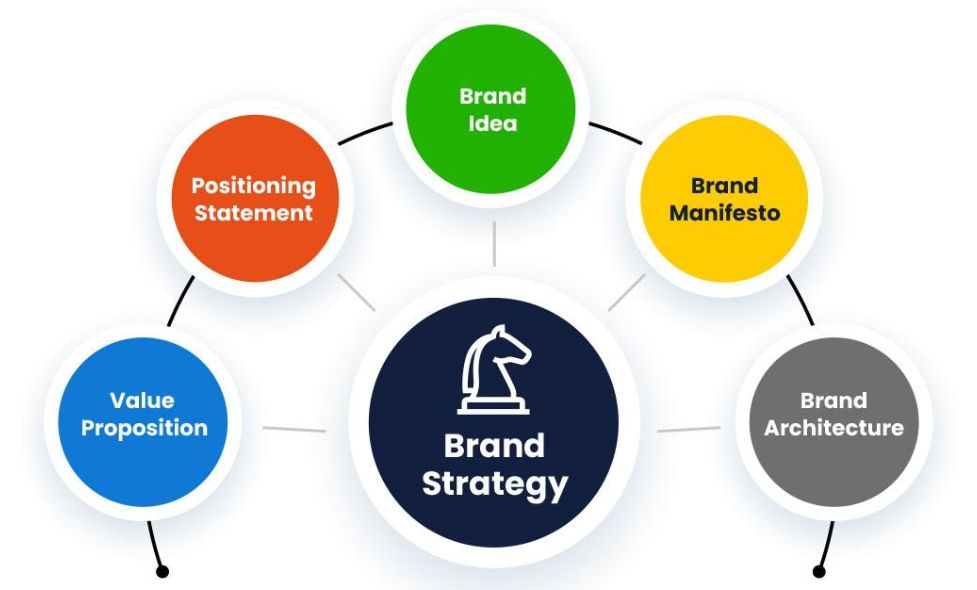Essential Strategies to Build Your Brand as an Entrepreneur

The personal brand can significantly impact their entrepreneurial success. The importance goes beyond your business and into your brand. A solid personal brand may differentiate oneself, create confidence, and build lasting relationships with one’s target audience. This comprehensive guide covers the basics of building an entrepreneur’s brand. This detailed tutorial will explain personal branding and offer practical tips for its creation and use.
Quick Shortcut Headlines
Why is Personal Branding Crucial for Entrepreneurs?
Your brand is more than a logo or a catchy slogan; the narrative defines you as an entrepreneur. In an era where people connect with stories, your brand story becomes a powerful tool for engagement. Here’s why personal branding is crucial for entrepreneurs:
Trust and Credibility:
A well-crafted personal brand builds trust. It establishes you as a credible authority in your industry, increasing your influence.
Differentiation:
In a competitive landscape, your brand sets you apart. It showcases what makes you unique and why people should choose you over others.
Attracting Opportunities:
A solid personal brand attracts opportunities, whether it’s partnerships, speaking engagements, or media features. It opens doors that might otherwise remain closed.
Legacy Building:
Your brand is your entrepreneur legacy. It’s what people remember about you and how you’ve contributed to your industry or community.
Define Your Brand Identity
Here’s how to define your brand identity:
Identify Your Core Values:
What principles guide your life and work? Your core values are the foundation of your brand. They define the boundaries you won’t cross and the causes you’ll champion.
Recognize Your Strengths:
What are you exceptionally good at? Your strengths are your unique selling points. They’re the skills and qualities that set you apart from others.
Passion and Purpose:
What drives you? Your passion and purpose give your brand meaning. They’re the emotional connection points that attract like-minded individuals.
Personal Story:
Your personal story is a potent part of your brand. People love stories, especially those of triumph over adversity or transformation. Share your journey, including the challenges you’ve overcome.
Brand Message:

Define a clear, concise brand message. It should capture your values, strengths, and purpose.
How to Know Your Target Audience?
Understanding your audience is key to personal branding. As a entrepreneur you must know your audience and their needs. You must tailor your marketing messaging to their requirements and goals. Way to do it:
Create Buyer Personas:
Develop detailed buyer personas representing your ideal customers or clients. These personas should encompass demographic information, pain points, goals, and preferences.
Market Research:
Conduct market research to understand your industry and your competitors. What are the trends? Where are the gaps? How can your brand fill those gaps?
Address Pain Points:
Identify the challenges your target audience faces and position your brand as the solution. Your brand should provide answers to their problems.
Unique Selling Proposition (USP):
Highlight your USP. What makes your brand different from others? Why should your audience choose you?
What is The Power of Authenticity?
Authenticity is the linchpin of personal branding. It builds trust and forms genuine connections with your audience. Here’s how to infuse authenticity into your personal brand:
- Be Yourself: Be honest to start becoming authentic. Try not to be someone else. Take pride in your peculiarities.
- Transparency: Share your journey, including both successes and setbacks. Transparency humanizes your brand and makes it relatable.
- Honesty: Be honest in your interactions and communications. Authenticity and honesty go hand in hand.
- Consistency with Values: Ensure that your actions align with your stated values. Consistency reinforces authenticity.
- Engagement: Engage genuinely with your audience. Listen to their feedback, address concerns, and show appreciation for their support.
How to Build Your Online Presence?

Your online presence is where your brand takes root and grows. Here’s how to build a solid online presence:
Website:
Make a professional website your brand’s hub. Include a blog, portfolio, and contact information.
Social Media:
Choose social media platforms that align with your target audience. Maintain active profiles and engage with your followers regularly.
LinkedIn:
LinkedIn is particularly valuable for professionals and entrepreneurs. Optimize your LinkedIn profile, connect with industry peers, and share insightful content.
Online Forums and Groups:
Participate in online forums and groups related to your industry. Offer valuable insights and establish yourself as an authority.
Online Reviews:
Encourage satisfied clients or customers to leave positive online reviews. Monitor and respond to reviews, both positive and negative.
Guest Blogging:
Contribute guest posts to reputable blogs or publications in your industry. It’s an excellent way to expand your reach and build authority.
Networking and Relationship Building
Networking is a powerful tool for personal branding. Genuine industry ties may open doors, provide support, and boost your brand’s reach. How to do it effectively:
Attend Industry Events:
Attend conferences, seminars, and industry-specific events. Networking in person can be invaluable.
Online Networking:
Engage in online networking through platforms like LinkedIn and Twitter. Connect with peers, influencers, and potential collaborators.
Mentorship:
Seek mentorship from experienced individuals in your field. Mentorship can provide guidance, support, and valuable insights.
Collaborations:
Collaborate with other entrepreneur and influencers on projects or content. Collaboration can introduce your brand to new audiences.
Measuring Success

Measuring the success of your personal brand can help you assess your impact and identify areas for improvement. Key metrics include:
Follower Growth:
Track the growth of your online following across various platforms.
Engagement:
Measure likes, comments, shares, and other forms of engagement on your content.
Website Traffic:
Analyze your website and blog traffic to understand your audience’s interests.
Influence:
Assess your influence in your industry by monitoring speaking invitations, media mentions, and collaboration opportunities.
Impact:
Ultimately, your personal brand’s success should align with your initial goals. Have you achieved the influence, trust, and opportunities you aimed for?
Conclusion
Establishing a personal brand as an entrepreneur necessitates a continuous endeavour that demands unwavering commitment, genuine expression, and flexibility. By employing these fundamental methods, individuals may distinguish themselves, foster confidence, and establish enduring relationships with their target audience. Personal brands permanently express an entrepreneur’s efforts, so they require careful investment. Establishing and improving your brand can increase your business’s success and leave a lasting impression on your industry and community.


